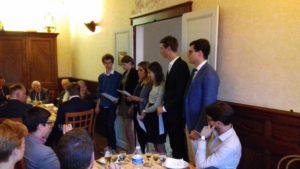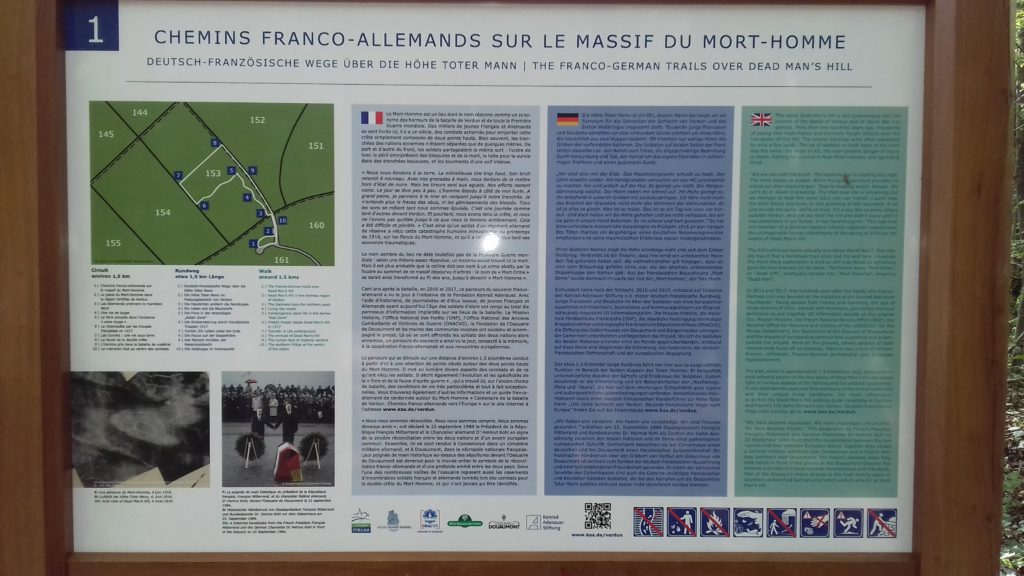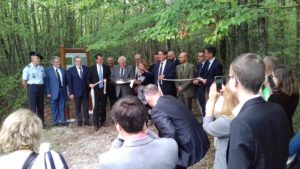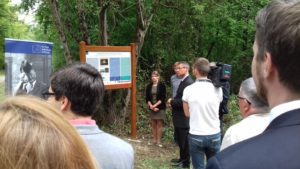In a small way, the Webmaster recently helped explain parts of the Great War to the general public. A German historian and friend, Markus Klauer, asked him to review the English text on a series of sign boards to be posted on the newly-created trail “Chemins Franco-Allemands” on the Mort Homme (i.e. Verdun) battlefield. This was just to add another set of eyes to check the translation.
The sign boards were posted and the dedication of the sign boards was set for 1. The Webmaster was fortunate enough to be invited to the dedication and the subsequent dinner. What he did not know was just how “international” this trail project was and how many French and German local and regional dignitaries, associations and individuals played a role in this project. Funding was provided by the German Konarad Adenauer Stiftung and others; and the work team consisted of a mix of Germans and French, including many students who received a scholarship to participate in this exchange, of sorts.
After the wonderful festivities the Webmaster left the event reaffirmed in his belief that, for most French and Germans, the message of Verdun is that there cannot be another war of scale in Europe. Three terrible wars between 1870 and 1945 were enough. As many readers know, this joint German-French vision has been one of the key drivers behind the formation of the European Union; and, in the Webmaster’s opinion, it is the main reason why the EU and the Euro will stay in place, in spite of all of the imperfections. (The WSJ and similar publications have been predicting / calling for the demise of both since the Great Recession of 2007/08 or earlier.)

Students Outlining Their Suggestions on Building a Stronger Franco – German Relationship at the Evening Dinner
But it’s not just the Europeans who are doing such programs. The Webmaster knows of at least two U.S. cross-cultural exchange programs that arose out of the world wars. The Fulbright Scholarship program arose from the ashes of WW2; when, in 1945, Senator J. William Fulbright introduced a bill in the United States Congress that called for the use or surplus war property to fund the ‘promotion of international good will through the exchange of students in the fields of education, culture and science.’ Likewise, the AFS arose out of WW1, when the American Ambulance Field Service was transformed from a wartime humanitarian aid organization into an international school exchange and intercultural learning organization.
In the words of George Santayana, “Those who do not remember the past are condemned to repeat it.” During this Centennial period, historians and battlefield pilgrims will continue to debate and struggle with the “true” lessons that were / should have been learned from the 1914 – 1945 period. In the Webmaster’s opinion, one should be thankful for the cross-cultural exchange opportunities that have risen out of two terrible wars.
(In full disclosure, the Webmaster was a Fulbright Scholar at the Universitaet Hamburg in 1985/86.)




